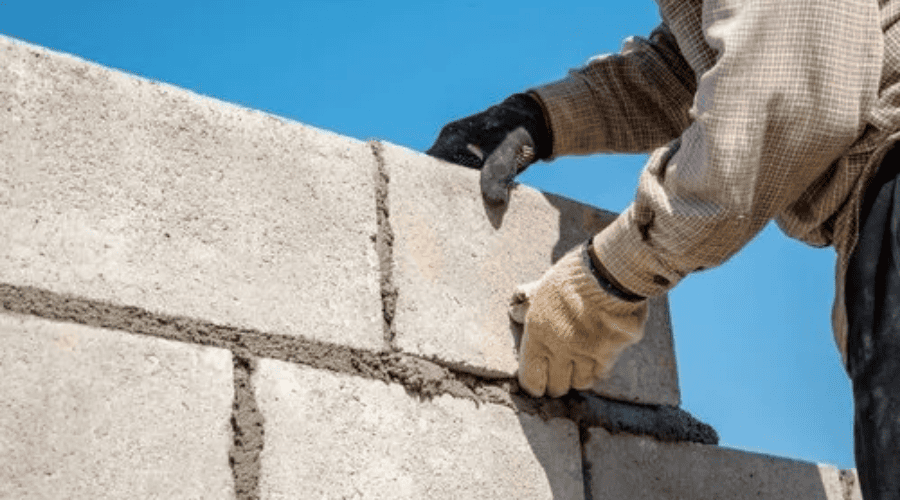Benefits of Using Concrete Blocks in Sustainable and Eco-Friendly Building

As the world increasingly embraces eco-conscious practices, the construction industry is turning to materials that help promote sustainability. And guess what? Concrete blocks are one of the leading materials in this green revolution. If you're thinking about starting a sustainable project, these blocks might just be the perfect fit. So, how exactly do they contribute to sustainable, eco-friendly building? Let’s explore the key benefits of using concrete blocks in green construction.
What Are Concrete Blocks?
Before we get into why concrete blocks are an eco-friendly choice, let’s quickly break down what they are. Concrete blocks are versatile building materials made from a mixture of cement, sand, water, and gravel. They come in various shapes and sizes, including hollow and solid blocks, and are commonly used for building walls, foundations, and structures.
Concrete blocks are known for their strength and durability, but their contributions go beyond just structural support—they're also champions of energy-efficient, green building practices.
Concrete Blocks and Sustainability: A Perfect Match
When it comes to sustainability, concrete blocks check a lot of boxes. They’re made from abundant, natural materials like sand and gravel, which can be sourced locally, reducing the carbon footprint associated with long-distance transportation.
Plus, concrete blocks have a long lifespan, meaning they don’t need to be replaced frequently. The longer a material lasts, the less waste is generated, which is a key principle in sustainable construction. And did we mention that these blocks are reusable and recyclable? It’s hard to beat that combination when aiming for a green build.
Energy Efficiency of Concrete Blocks
One of the biggest perks of using concrete blocks in construction is their ability to regulate temperature, making your building more energy-efficient. How? It all comes down to thermal mass.
Concrete blocks have excellent thermal mass properties, which means they can absorb and store heat, keeping your building cooler in the summer and warmer in the winter. This leads to a significant reduction in energy use for heating and cooling, which, in turn, lowers the building’s carbon footprint. Imagine cutting down on your electricity bills while doing your part for the environment—that's a win-win!
Durability and Longevity: Reducing Waste in Construction
Another major benefit of concrete blocks is their exceptional durability. These blocks are designed to withstand extreme weather conditions, making them a reliable choice for both residential and commercial projects. Because they are so durable, buildings made with concrete blocks tend to have a longer life cycle, reducing the need for repairs or replacements.
By using materials that last, you're not only saving on future construction costs, but you're also helping to cut down on construction waste. Less waste means fewer materials end up in landfills, which is a huge plus for the environment.
Concrete Blocks and Local Sourcing
When we talk about eco-friendly building materials, locally sourcing those materials plays a huge role in sustainability. Concrete blocks are often manufactured locally, which reduces the environmental impact of transporting materials over long distances.
By choosing locally sourced concrete blocks, you're not only supporting your local economy, but you're also minimizing the transportation emissions associated with construction materials. It's a small but impactful way to make your building project greener.
Recyclability and Low Maintenance
Another eco-friendly feature of concrete blocks is that they can be recycled at the end of their life cycle. Old concrete blocks can be crushed and used as aggregate for new concrete, which means less material waste and more reuse. This makes concrete blocks a closed-loop material, contributing to a circular economy.
Additionally, concrete blocks are low-maintenance. Buildings made with these blocks require fewer repairs and replacements over time, which means less use of resources and a lower environmental impact in the long run.
The Role of Concrete Blocks Manufacturers in Green Construction
The sustainability of concrete blocks doesn't stop at the material itself. Many concrete blocks manufacturers are adopting greener production methods to reduce the environmental impact of their products. From using energy-efficient machinery to incorporating recycled materials into the mix, manufacturers are doing their part to support eco-friendly construction.
As more companies focus on reducing their carbon footprint, the production of concrete blocks is becoming increasingly sustainable. Builders who prioritize green building should seek out manufacturers committed to these eco-friendly practices.
Conclusion
It’s clear that concrete blocks have a lot to offer when it comes to building sustainably. From their energy efficiency and durability to their recyclability and local sourcing, these blocks are an excellent choice for eco-conscious builders. Plus, with more concrete blocks manufacturers embracing green production methods, it's easier than ever to find blocks that align with your sustainable building goals. So if you’re looking to build a greener, more energy-efficient structure, concrete blocks are a smart and sustainable solution.
At Apco, we’re committed to excellence in the construction industry. As a leading manufacturer, we provide versatile and durable concrete blocks that adhere to the highest standards. Trust us for quality materials that empower your building projects, ensuring strength and reliability every step of the way. Choose Apco for a solid foundation!
FAQs
1. Are concrete blocks recyclable?
Yes, concrete blocks can be recycled by crushing them and using the material as aggregate for new construction projects.
2. How do concrete blocks contribute to energy efficiency?
Concrete blocks have high thermal mass, which means they can absorb and release heat, helping to regulate indoor temperatures and reduce energy usage.
3. Are concrete blocks eco-friendly?
Yes, concrete blocks are made from natural materials, are durable, and can be recycled, making them a sustainable building option.
4. Can using concrete blocks reduce construction waste?
Absolutely. Due to their long lifespan and durability, buildings made with concrete blocks require fewer repairs and replacements, leading to less construction waste.
5. What role do concrete blocks manufacturers play in sustainability?
Many manufacturers are adopting greener production methods, such as using recycled materials and energy-efficient processes, to create more eco-friendly concrete blocks.
